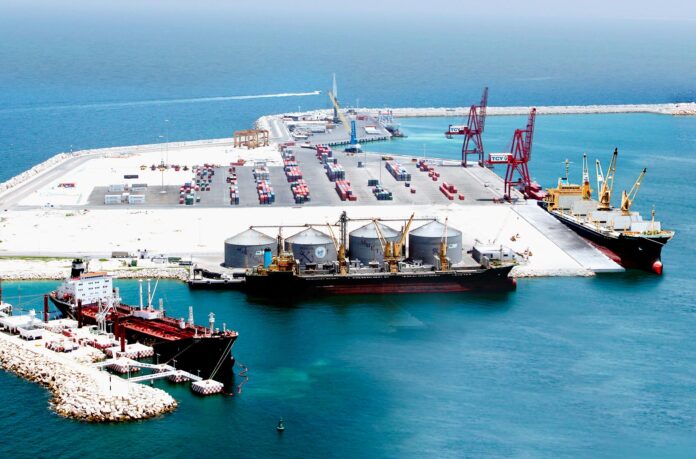AT&T in Mexico has installed a private LTE network from Finnish vendor Nokia at the APM Terminals port in Puerto Progreso, in the Yucatán in Mexico. The pair are billing the new LTE installation as “industrial grade”. It uses Nokia’s Digital Automaton Cloud (DAC) core networking product, plus edge computing facilities, alongside Nokia’s radio access network (RAN) equipment. It is the first private cellular deployment at a maritime port in the country. It uses AT&T’s spectrum in Mexico.
APM Terminals Yucatán is the only container terminal in Puerto Progreso, a deep-water port and a key logistics location on the Gulf of Mexico, serving the Yucatán peninsula and southeastern Mexico. Its LTE network will provide “broadband connectivity, lower latency, and greater predictability… in piers and yards,” said a statement. It will cover an area of 11.5 hectares, and be used to connect dock workers, IoT sensors, and port equipment and vehicles.
A statement said APM Terminals is getting a new “virtualised terminal operating system” to support future applications, including remote and autonomous crane operations within the piers and yards, “as well as enable new capabilities”. Nokia is pitching its DAC platform squarely at the Industry 4.0 space – specifically for “the mission-critical needs of asset-intensive industries such as port terminals”. Nokia claims to have deployed private LTE/5G for 475-odd “large… customers”.
Nathalie Rush, managing director at APM Terminals Yucatan said: “We are working with AT&T Mexico and Nokia because of their expertise and unique knowledge in the Mexican telecom market. The signal strength has really exceeded our expectations so far. We can cover the entire port with the solution, reaching a radius of about 6 kilometers. This platform is already considered a reference for the rest of the terminals in the group.”
Gabriel Fernández, director of innovation and IoT at AT&T Mexico, said: “This has been the first Private Cellular Network for AT&T Mexico Business Unit. The needs and demands of our customers are always evolving, though, and we’re upgrading with them. Private networks are increasingly important for businesses – especially in Industry 4.0 environments with a lot of connected devices, where privacy, data control and performance are all crucial.”
Marcelo Entreconti, head of enterprise for Nokia in Latin America, said: “The US-Mexico-Canada free trade agreement (USMCA) accelerates investment and boosts the digital transformation of the logistics chain, including support to maritime terminals… With this project, APM Terminals confirms its leadership in the digitalization of port operations in Latin America.”

